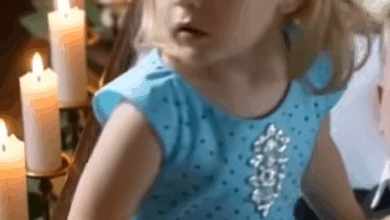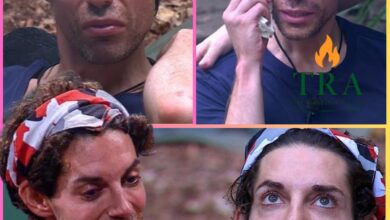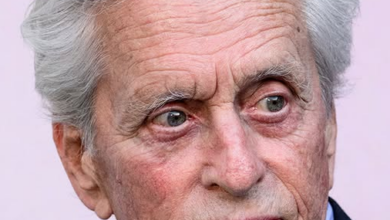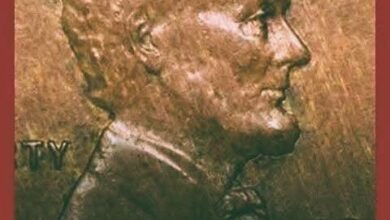
A Midnight Knock That Changed How I Saw People Forever!
It began as a sound I couldn’t place — a low, steady hum cutting through the stillness of midnight. At first, I thought it was thunder. But then the rumble grew louder, multiplied, and became impossible to ignore.
When I looked out the window, my breath caught. Nearly thirty motorcycles lined the quiet curve of our suburban street, their headlights slicing through the darkness like a strange, synchronized storm. Chrome gleamed under the streetlights, leather jackets glistened with dew, and the night that had been so silent moments ago now thrummed with power.
For a moment, fear rooted me to the floor. Who were they? Why were they here — in front of my house? My first thought was chaos, noise, danger. I pictured shouting, maybe vandalism, or some kind of mistaken address.
But then, one by one, the riders turned off their engines. The sudden silence was deafening. They dismounted, removing their helmets, and stood shoulder to shoulder — not menacing, not loud. Just still. Their focus was fixed on my son’s window.
That was when my fear turned to confusion.
A tall man with graying hair stepped forward, holding his phone in one hand. His expression wasn’t threatening — it was solemn. He approached my porch carefully, as though afraid to scare me. Then he knocked, three times, soft but deliberate.
I hesitated before opening the door just a crack. “Can I help you?”
He removed his gloves and spoke gently. “Ma’am,” he said, his voice steady but kind, “we need to talk to you about your son.”
For a moment, I couldn’t breathe.
He showed me the phone. On the screen were posts — dozens of them — written under my son’s name. Words that didn’t sound like him, but at the same time, were unmistakably his. Desperate words. Hopeless words. Messages about pain, about wanting it all to stop.
The blood drained from my face.
“I… I didn’t know,” I whispered. My throat felt tight, my heart pounding so loudly I could barely hear. “I thought he was just… withdrawn.”
The man nodded slowly. “We understand. We’ve seen this before. We’re part of a group that watches for these kinds of messages online. We reach out when we can.”
Behind him, the other riders stood silently — hands folded, eyes lowered. No judgment, no mockery. Just quiet concern.
“We came to make sure he’s safe,” the man added softly. “That’s all.”
Something in his voice broke me. I didn’t know these people. I had never met them, never imagined anyone would care enough to show up for a stranger’s child in the middle of the night. Yet there they were — an army of compassion on motorcycles, standing in the cold because someone they didn’t even know had cried out for help.
I led them inside. My hands were shaking. Every step down the hallway to my son’s room felt heavier than the last.
I knocked on his door. “Sweetheart?”
There was no answer.
When I opened it, he was sitting on the edge of his bed, his face pale in the glow of his computer screen. When he saw the group behind me — the man, the riders quietly waiting in the hall — his eyes widened.
“Mom, what’s going on?”
The man stepped forward slightly. “Hey, buddy,” he said gently. “We’re not here to scare you. We saw some of the things you wrote online. We just wanted to make sure you’re okay.”
My son froze. For a moment, he looked angry — embarrassed, even. But then something inside him seemed to crack. His shoulders slumped, and his eyes filled with tears.
“I didn’t think anyone would notice,” he said, voice barely above a whisper.
“Well, we did,” the man said. “And we care. You matter more than you think.”
I sat beside my son and took his hand, my own tears spilling freely. “I’m so sorry,” I whispered. “I should have seen it. I should have known.”
He shook his head. “You’re busy. I didn’t want to worry you.”
But I was already worried — more than I had ever been in my life. I called our local crisis response team and a counselor I knew through the community center. They came within minutes, calm and professional, taking over gently.
The bikers stayed. They stood outside our house, engines off, arms crossed, keeping watch as though guarding sacred ground. When the counselor and responders finally arrived and assured me my son would be safe, the riders nodded, satisfied.
“Thank you,” I said through tears. “You don’t even know us.”
The man smiled faintly. “Doesn’t matter. When someone’s in trouble, we show up. That’s what we do.”
As dawn crept over the horizon, they started their engines again — the quiet thunder returning, this time not frightening but strangely comforting. Before leaving, the man pressed a small card into my hand.
“Call anytime,” he said. “You’re not alone in this.”
Then they rode off into the morning light, the rumble fading until all that remained was the whisper of wind and the faint glow of sunrise.
I stood there for a long time, the card clutched in my hand, the house finally still again. My son was safe. He was getting help. And all because a group of people I had once dismissed as dangerous had chosen empathy over apathy.
That night changed everything — not just how I saw others, but how I saw myself.
For years, I’d carried quiet stereotypes — assumptions about people who looked rough, who rode loud bikes, who didn’t fit the neat boxes of suburbia. But those men and women had more heart than anyone I’d ever known. They didn’t arrive for glory or thanks. They didn’t film themselves or seek praise. They simply acted.
In their silence, I saw strength. In their kindness, I saw courage.
And in that knock on my door, I saw something I had been too busy, too distracted, too afraid to see — the pain in my own child’s eyes.
My son is better now. He still goes to therapy, still works through his darkness one day at a time. And every once in a while, he gets a message from one of the riders — just a simple check-in. “How you doing, kid?” “Keep going.” “You matter.”
Those messages mean more to him than they’ll ever know.
As for me, I keep their card pinned to the refrigerator — not as a reminder of that terrifying night, but as proof that humanity still exists in its purest form. That kindness doesn’t always come dressed in white coats or badges. Sometimes, it arrives on two wheels, wrapped in leather, and carrying the quiet power to save a life.
Whenever I hear the distant growl of a motorcycle engine now, I don’t flinch. I smile.
Because I remember that night — when strangers became guardians, when a son found hope, and when a mother finally learned that compassion wears every face imaginable.
And though I never learned all their names, I’ll never forget what they gave me: faith — in people, in goodness, and in the possibility of being seen even in the darkest hours.
Because sometimes, heroes don’t knock softly. They roar to your door — just to make sure your child gets to see another sunrise.




